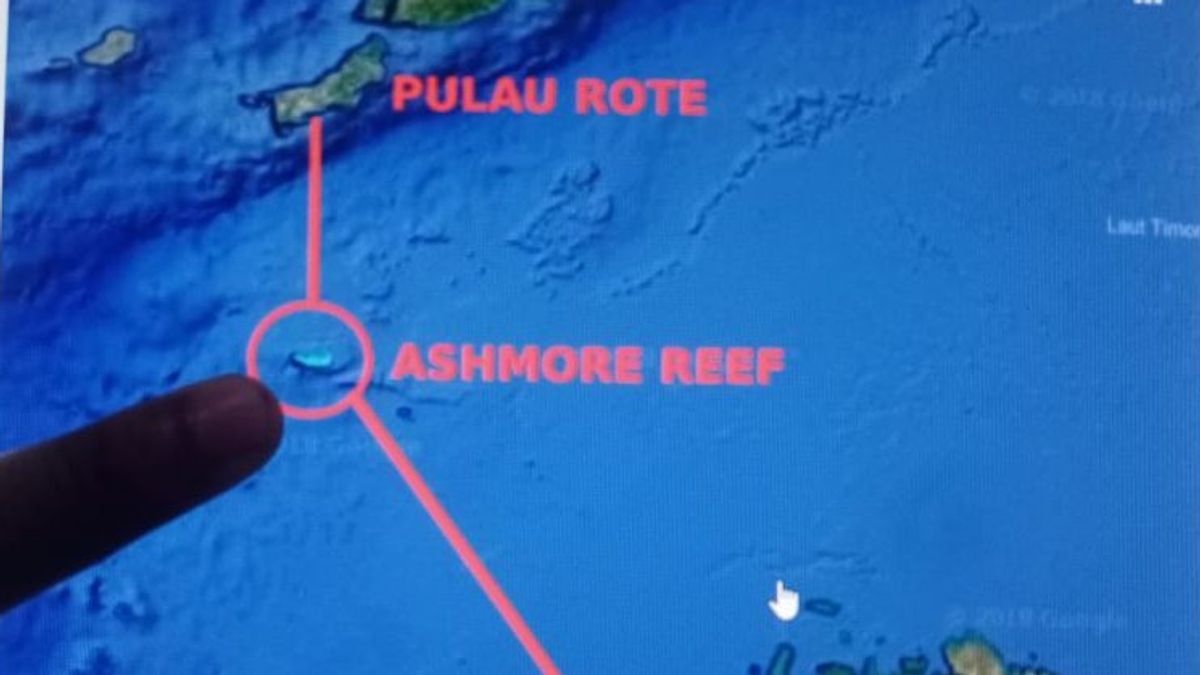KUPANG - The West Timor Care Foundation (YPTB) again urges the Australian Government to immediately leave the Pasir Island cluster or Ashmore Reef, which is still a disputed area between Indonesia and Australia.
"The Sand Island Cluster is legally the property of the Timor-Rote-Sabu-Alor indigenous people, then Australia only entered the Pasir Island cluster area around 1975 and then slowly changed the name of the Sand Island Cluster to Ashmore Reef," said YPTB Chairman Ferdi Tanoni. from Antara, Thursday, July 14th.
The sole winner of the 2013 Civil Justice Award from the Australian Lawyers Alliance said that according to historical facts, the British Government in 1932 handed over the management of the Pasir Island cluster to the Australian Federal Government.
The act of unilateral and illegal annexation by Australia cited the history of Captain Samuel Ashmore's journey when he was about to return to his country (England) in 1811 and passed through the Sand Island cluster.
In 1878, the British Government unilaterally claimed to be part of British territory and then named it "Ashmore Reef", without the knowledge of the Dutch East Indies Government which controlled it.
When referring to the decision of the International Court of Justice in favor of Malaysia in the Sipadan-Ligitan Island dispute based on reasons of effectiveness (without deciding on the question of territorial waters and maritime boundaries), the position and status of the Pulau Pasir group is the opposite.
According to Ferdi, who is also the holder of the mandate for the customary rights of indigenous peoples in the Timor Sea, that in 1998, the dispute between Sipadan and Ligitan was brought to the International Court of Justice (ICJ), then on Tuesday, December 17, 2002, the ICJ issued a decision regarding the dispute over the sovereignty of Sipadan Island. -Ligatan between Indonesia and Malaysia.
"As a result, in the voting at the institution, Malaysia was won by 16 judges, while only one judge sided with Indonesia," he said.
Broadly speaking, the decision of the International Court of Justice in favor of Malaysia was based on considerations of effectiveness without deciding on the question of territorial waters and maritime boundaries, namely that the British Government (the colonizer of Malaysia, ed) had taken real administrative action in the form of issuing an ordinance for the protection of birds, tax collections. to turtle egg collection since the 1930s, and lighthouse operations since the 1960s.
Meanwhile, when compared with the facts found in the Pasir Island cluster based on effectiveness, namely the Dutch East Indies Government (Indonesian colonizers, ed) has taken real administrative action in the form of issuing a visit permit known as a road pass and collecting taxes for every fisherman who wants to visit. to the Pasir Island cluster to pick up turtle eggs and sea cucumbers.
This action continued at least until the 1976s, before 1974 when Indonesia and Australia concluded an MoU on the rights of traditional fishermen. In addition, the Pasir Island cluster has been used as a second home for traditional Timor Sea fishermen about 500 hundred years ago, long before Australia became a sovereign nation.
"Thus, if the decision of the International Court of Justice in favor of Malaysia over the dispute over the islands of Sipadan and Ligitan is made into legal jurisprudence, then it is clear that the Pasir Island cluster is a territorial part of the Unitary State of the Republic of Indonesia," he said.
The English, Chinese, Japanese, Arabic, and French versions are automatically generated by the AI. So there may still be inaccuracies in translating, please always see Indonesian as our main language. (system supported by DigitalSiber.id)













